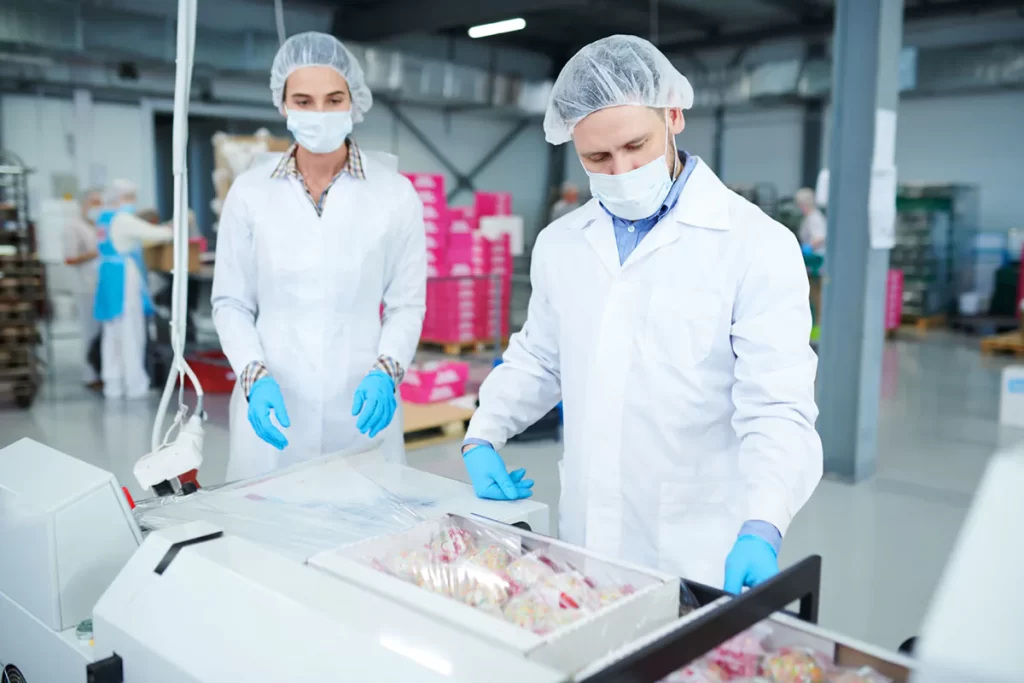
As we have investigated over the last month, the COVID-19 pandemic has had a significant impact on all industries, particularly the food and beverage industry, the paper industry, the medical device manufacturing industry, and the pharmaceutical industry. Today, we continue this exploration with a look at the industrial manufacturing industry and how the public health crisis has impacted its operations and culture.
Orders Plummeted in March
For the last two months, manufacturers have struggled to balance increased supply chain needs with the health and safety of their employees. As a result, the manufacture of non-essential items has largely ceased as the economy grinds to a halt. In March, orders to U.S. factories for big-ticket manufactured goods decreased by 14.4%.
How Manufacturers Have Pivoted
Some manufacturers have pivoted their production efforts toward making items essential to crisis response efforts, such as medical devices, masks, and COVID-19 tests. We previously explored this topic in our post about the medical device manufacturing industry.
We have seen examples of manufacturers from all industries stepping up to help out. A 3D printer manufacturer based in San Francisco has been making COVID-19 tests, and some states (like Illinois) have specifically formed task forces to coordinate manufacturing efforts to mass-produce life-saving ventilators and personal protective equipment, which have been in short supply.
Gauging the Full Effect
It may be awhile before we fully understand the full scale and impact of this pandemic on the manufacturing industry. However, anticipation and fear about what could befall these businesses has been widespread. Approximately 80% of U.S. manufacturers are bracing for a significant financial hit to their businesses, as the National Association of Manufacturers discovered in a recent survey.
As PWC pointed out, “the manufacturing sector, which employs some 13 million workers in the US, is poised to be hit hard during this outbreak, primarily for two reasons: First, many manufacturing jobs are on-site and cannot be carried out remotely. Second, slowed economic activity will likely reduce demand for industrial products in the U.S. and globally.”
Some have suggested that this is the best time for manufacturers to implement more automation technologies. This could mean the industrial internet of things, autonomous materials movement, and collaborative robotics, among other things.
Settling Into the New Normal
If history teaches us anything, it’s that short-term measures in the midst of a global crisis can often lead to long term change and progress. For example, the Great Depression completely redefined the government’s role in providing a financial safety net, and dramatically increased production during World War II led to a revival of entrepreneurship and ingenuity in manufacturing.
We have already seen the way the pandemic has shifted behavior in other industries, accelerating trends such as remote work, online learning, and video communication. Manufacturers of essential products like paper, personal care, and pharmaceutical products have needed to ramp up productivity as people rapidly empty stores partially out of panic and partially due to longer spans of time cloistered at home. Manufacturers of non-essential items have felt the pressure to cut operational costs as they have seen drops in demand.
Many manufacturing organizations have been operating at 40-50% capacity. Although knowledge workers and office employees have been able to shift to remote work for the most part, the majority of factories are not equipped to function with so much of their teams offsite.
How will the pandemic change the manufacturing industry in the months and years ahead? Will we see factories utilize more automation technology? Will there be a public push for increased supply chain transparency from manufacturers? Will we see more virtual work in the manufacturing industry, perhaps aided by AI and other advanced technologies? Only time will tell.
POWERS Can Help
At POWERS, we understand the pressure so many businesses are under right now. That’s why we launched the PowerUp programs and resources platform– to help you navigate this uncertain and tumultuous time.


